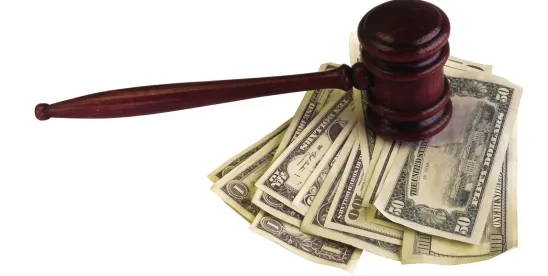On my recent speaking tour I have been observing that no Defendant has yet won a trial in a certified TCPA case. Think about that—every single Defendant to take a certified TCPA case the distance has lost. (Of course, I haven’t had my shot yet since I have never lost a certification motion—he says knocking on a Sequoiadendron Giganteum.)
Well that streak seemingly came to an end on Thursday when a Defendant successfully convinced a court during a bench trial of a certified TCPA junk fax case that the Plaintiff’s fax log—the key piece of evidence in these cases—was inadmissible. Wow! Rather than enter judgment for the defendant on the failure of proof, however, the Court bailed out the class with an order that seems to allow a second bite at the apple in a post-trial claims process that deprives the Defendant of the ability to challenge who is in the class. Huh?
In Lyngaas v. Curaden AG, Case No. 17-10910 2019 U.S. Dist. LEXIS 201986 (E.D. Mich. Nov. 21, 2019) the Court issued its ruling following a bench trial of a certified TCPA junk fax class action. The case is interesting for a number of reasons. Most basically the Court held squarely that a seller cannot be liable for junk faxes sent by a distributor: i) merely because the seller’s product is displayed in the ad; or ii) merely because the seller required the distributor to advertise its product, but otherwise has no involvement in the creation or transmission of the fax.
While the ruling on the scope of vicarious liability for the faxes may actually be the more lasting component of the case, the ultimate disposition on the merits of the class member’s claims is oh-so-much more interesting. In proof that those rules of evidence still matter, the Court granted the Defendant’s objections to the Plaintiff’s call logs and deemed them inadmissible. While it seems the Defendant objected to the logs on hearsay grounds that’s not quite right. True a document spit out by a computer is not deemed hearsay so long as it is a verifiable and accurate report of the content of a database or information that is otherwise routinely and properly compiled—the proper objection to an unreliable report of this kind is authenticity. It is unclear from the ruling whether the Defendant made the proper objection or not, but either way the Court sustained it—the fax log presented was a summary of a record provided by a third party. And for reasons the Court could not fathom the Plaintiff did not introduce evidence from that third party as to how the fax log was created and maintained. As such the log was inadmissible!
While Plaintiff attempted to wear a belt with his broken suspenders, his effort to introduce a log of completed faxes through an expert failed for want of a reliable methodology. As the Defendant pointed out, since the Plaintiff’s expert relied on the unreliable fax log to determine his count of completed faxes his determination was no more reliable than the excluded record. As a result both the fax log and the expert report relying upon it were excluded.
To put a fine point on the matter the Court wonders aloud a bit at the expense of Plaintiff’s counsel: It is puzzling, to say the least, that Lyngaas failed to come forward with any evidence that was both admissible and meaningful to demonstrate the reliability of the summary report log—a critical component of any “junk fax” claim brought under the TCPA. This failure is even more astonishing given that Lyngaas sought to recover classwide damages exceeding $30,000,000.”
Holy holiness. That has got to hurt.
But somehow, things were not as bleak as they seemed for the class. While this sort of failure of proof at trial should, you know, result in a judgment for a Defendant that didn’t quite happen here. For reasons I’m still trying to figure out, the Court elected, instead, to allow a post-trial claims process to class members to submit claims and recover money. That really shouldn’t be possible since, you know, the Defendant won the trial. In fact, it is a poorly kept secret that trials are the part of a case where evidence is submitted and determinations of liability are usually made.
Here, however, although the class has “lost” the trial—which should have resulted in notice to the class reading effectively: “ha-ha”— instead the class members are to receive notice of the right to make a claim. Two things are particularly maddening about this result, in addition to the whole Defendant wining and then losing thing: i) the Defendant is denied the right to protest class membership—“it is not entitled to discovery or trial regarding a claimant’s status as a class member”—and instead “if a claim form is complete and consistent with the information reflected in the target lists, it will be granted”; and ii) apparently the class notice and claim forms is being sent to the precise list of fax targets that the Court excluded as non-probative on the issue of fax receipt.
Oy vey.
So there you go folks. Welcome to TCPAWorld. The only place on Earth where you can lose a class action by winning at trial.




 />i
/>i
